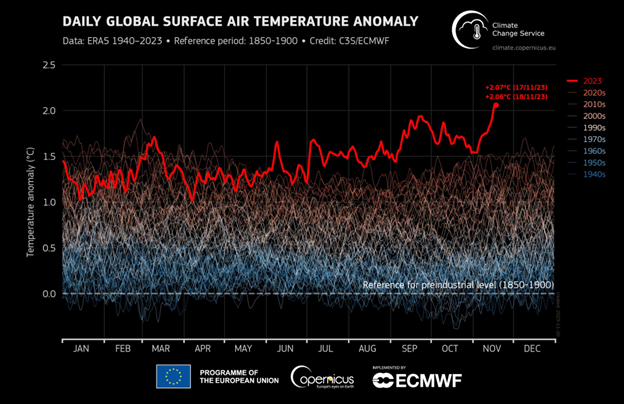Last weekend, the Earth briefly overcame a critical limit. November 17, 2023 was the first day when the global temperature of the planet exceeded the pre-industrial level by 2°C.

In 2015, an international agreement was signed in Paris. The aim of this agreement is to keep the increase in global average temperature “well below” 2 °C and “make efforts” to limit the temperature increase by 1.5 °C. These figures are chosen because warming by two degrees in comparison with the pre-industrial era will lead to irreversible consequences for the planet and its ecosystems. However, efforts to prevent climate change are not yielding the desired result yet.
According to the European Centre for Medium-Range Weather Forecasts (ECMWF), on November 17, the global surface air temperature exceeded the average pre-industrial values by 2.07 °C. We are talking about the period from 1850 to 1900, i.e. before the widespread use of fossil fuels. Preliminary data for November 18 also indicate that the average temperature was 2.06 °C above the pre-industrial level.
Moreover, the global surface air temperature on November 17 was 1.17 °C above the average for the period from 1991 to 2020. Thus, November 2023 is likely to be the warmest month in the entire history of observations.
Earlier we talked about what global warming was and how it could affect us.
According to https://climate.copernicus.eu
Follow us on Twitter to get the most interesting space news in time
https://twitter.com/ust_magazine


